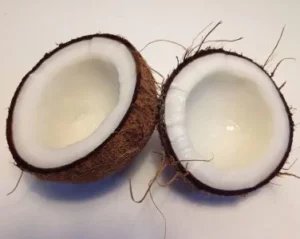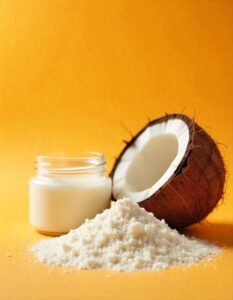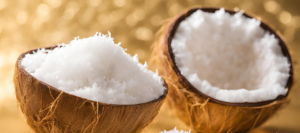Indian Coconuts in Technicolor: A Vibrant Export Story

India, also known as the land of spices and rich cultural diversity, is not only famous for its vibrant festivals and exotic cuisine but also for its coconut production. Coconuts, especially mature coconuts and coconut byproducts, have been an integral part of the Indian agricultural landscape for centuries. In recent years, India’s coconut export industry has witnessed significant growth, attracting attention from all over the world. This blog post aims to shed light on the vibrant export story of Indian coconuts, their byproducts, and the factors that make them highly sought-after globally.
Evolution of India’s Coconut Industry
Coconut trees have thrived in the tropical climate of India for thousands of years, and the country has a long-standing tradition of cultivating and utilizing coconuts. The coconut industry in India has grown steadily over time, thanks to careful cultivation practices, technological advancements, and increasing demand from both domestic and international markets.
Exporting Indian Coconuts: A Blooming Trade

India stands as one of the largest exporters of coconuts and coconut products worldwide. The country’s well-established infrastructure, strict quality control measures, and adherence to international standards have played a crucial role in boosting its export trade.
Varieties of Indian Coconuts
Indian coconuts are available in various forms, each with its unique characteristics and applications. Let’s explore a few of the most popular varieties:
Mature Coconuts: Mature coconuts are known for their hard shells and thick, juicy flesh. They are widely sought-after for their refreshing water, high nutritional value, and versatility in culinary applications.
Coconut Oil: India is renowned for its premium quality coconut oil, extracted meticulously from mature coconuts. Rich in healthy fats, antioxidants, and vitamins, Indian coconut oil is a staple in many cuisines and has gained popularity for its various health benefits.
Coconut Milk and Cream: Extracted from the flesh of mature coconuts, coconut milk and cream are widely used in Indian and global cooking. Their creamy texture and distinct flavor enhance the taste of curries, desserts, and exotic beverages.
Coconut Flour: Made from the dried, finely ground meat of mature coconuts, coconut flour is an excellent gluten-free alternative in baking. Its high fiber content and low glycemic index have made it a favorite among health-conscious individuals.
Factors Contributing to India’s Export Success
Several factors have contributed to India’s success in exporting coconuts and coconut byproducts:
Quality Control: Indian coconuts undergo strict quality control measures at every stage of cultivation, harvesting, and processing. This ensures that only the finest products reach the global market.
Rich Agricultural Practices: Indian farmers employ traditional and sustainable agricultural practices that prioritize the health of coconut trees and the quality of their produce. Their expertise contributes to the superior taste and texture of Indian coconuts.
Geographical Advantage: India’s proximity to major shipping routes and its well-developed ports facilitate the smooth transportation of coconuts to various international destinations. This geographical advantage has been instrumental in establishing India as a reliable coconut exporter.
Diverse Applications: The versatility of Indian coconuts and their byproducts allows for a wide range of applications in food, beauty, healthcare, and other industries. This adaptability has broadened the export potential and commercial viability of Indian coconuts.
Sustainability and Fair Trade Practices

India’s coconut industry places utmost importance on sustainability and fair trade practices. Farmers are encouraged to adopt eco-friendly techniques, minimize chemical usage, and ensure the well-being of their communities. Fair trade initiatives empower small-scale farmers by providing them with fair prices, better working conditions, and improved access to global markets. By choosing Indian coconuts and their byproducts, consumers can support these ethical practices and contribute to a sustainable future.
Join the International Coconut Craze!

As the demand for coconuts continues to grow worldwide, Indian coconuts and their byproducts offer a colorful and enriching experience. Whether you are a culinary enthusiast, a health-conscious consumer, or a beauty enthusiast, Indian coconut products provide an abundance of options to suit your needs.
To explore the fascinating world of Indian coconuts, try incorporating coconut oil in your cooking, experimenting with coconut milk in your favorite recipes, or discovering the benefits of pure coconut water for hydration. The possibilities are endless!
Experience the vibrancy and richness of Indian coconuts in technicolor – join the international coconut craze and add a touch of India to your lifestyle.
References:
- Coconuts: A Global Perspective
- Coconut byproducts and their culinary applications
- The sustainable coconut trade: India’s contribution



